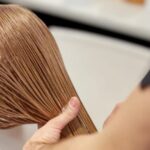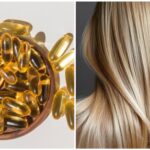1. Hydrate from Within
Dry cold air in winter does distress the hair. Proper hydration will hydrate flood the hair from the inside out.
Hydration is what will keep your hair healthy and hydrated in winter because this includes water consumption.
Also, for outside hydrate, consider a good moisturizing shampoo and conditioner.
2. Use Moisturizing Shampoo
Of late, this particular refreshing herbal shampoo becomes more useful during this winter season. The cold drafts come much with the heat and these affect the hair leaving it more brittle, she explained.
By making use of such moisturising shampoos, prevents your winter hair from dryness and breakage but leaves them manageable and healthy, injected with hydration into and nourishing the hair.
Add those to your winter hair carer’s regimen just for the additional protection.
3. Regular Conditioning
Then conditioning becomes more important for maintaining the health and moisture of the hair during the winter season. Home heating systems coupled with the colder outside temperatures make even the indoors feel dry and develop frizziness and dryness.
You will find that a moisturising conditioner helps to enable recovery of any moisture lost from your hair and keeps it the same, nice and healthy.
Deeply condition your hair probably once a week for extra nourishment.
4. Avoid Hot Water
It is preferable not to wash long hair in winter with hot water as it removes the natural oils of hair and ends up in over-dryness. Whenever possible, lukewarm water could be used for softer care again.
In case of dry feeling eyes in winter, shampoo and conditioners having moisturizing qualities can be used to combat this condition. Washing hair less often is also a possibility to protect natural oils. Also, wear scarves or caps to protect the hair from bad weather.
Prevent split ends by trimming regularly and maintain moisture balance through deep conditioning treatments.
5. Reduce Heat Government
Reduced use of heat styling instruments such as curling irons and straightening tools to limit heat styling in the winter. Try out some non-heated styles, such as braiding, air-drying, and using soft rollers.
Adopting a ponytail or bun hairstyle can also protect your hair when going through harsh weather conditions.
Application of heat protectant or leave-in conditioner may be done to keep your hair moist and protect it from possible damage caused during winter.
6. Protective Hairstyles
Especially when it’s winter, with cold weather and dry air, it can be really rough on hair. One of the most important types of care for wintertime hair is in terms of protective hairstyles. Styles such as braids, twists, and buns may help minimize exposure to the elements and thus help minimize breakage and loss of moisture.
Along with, hats and scarves whether satin or silk can help to reduce static yet in protect it healthy.
Moisturizing products and conditioning treatments are also needed to hydrate as the dryness that winter often brings. Regular trims will get rid of split ends plus help maintain hair strength over the cold months.
7. Regular Trims:
Regular Trims: HCPs would recommend that in the case of hair care, one maintains a sufficiently cautious schedule of regular trims; the recommendation must extend even to the winter.
This helps hair health by preventing split ends and imparting some more goodness to hair.
Silk or Satin Pillowcases: Silk or satin pillowcases are an advantage for dreams of winters too. They are smooth and highly frizz resistant, helping prevent split ends and breakage.
They also help reduce static and frizz, which are two of the biggest problems in winter due to dry air. Depending on the preference, either one can use satin or silk; satin is usually made of synthetic fiber such as polyester, while silk is a natural fiber.
8. Use Hats and Scarves
Hats or scarves are a must in winter for the prevention of the dry, cold air from attacking the scalp. They act as barriers to moisture loss from your hair and decrease your exposure to bracing winds.
This prevents your natural oils and moisture from being disrupted and may thus offer some protection against drying and breaking. In addition, its benefits extend to protecting against snow and UV rays, which in turn keeps hair health all right through winter.
Natural Oils
A lot can be said for the benefits of natural oils in winter hair care. They can hydrate and nourish your hair:
Coconut Oil: Coconut oil is famous for going into the hair shaft and thereby moisturizing and providing early protection against damage during extreme wintery conditions.
Argan oil: Rich in antioxidants and vitamins to nourish and shine parched and brittle hair.
Jojoba oil: It provides moisture without the oiliness. Just like the scalp produces natural oil, jojoba will supply your hair with moisture.
Olive oil: Naturally, a very multiproposed oil, smoothes and softens hair.
Sweet almond oil: A light and vitamin-rich oil which nourishes hair while keeping a healthy scalp.
Avocado oil: Very nutritious and it hydrates the hair fully and just makes it feel good overall.
Target the ends of your damp hair for application. Rub some of the oil of your choice in and give it an overnight treatment for extra conditioning.
Oil all the way applies to the ends of hair while not irritatingly greasy, adjust the amount according to the hair type but do not overdo it.
9. Avoid Wet Hair in Cold:
10. Dry Hair Before Stepping Out
Remember to step out into the cold with dry hair.
Wet hair is more vulnerable to the damage and makes you feel cooler.
Get a Microfiber Towel: Instead of a regular towel, try to invest in a microfiber one. This type of towel absorbs the excess water gently without creating friction or frizz and thereby dries your hair faster.
11. Static Control
The worst of winter is the static hair. Hair becomes frizzy and charged due to many causes, including dry air and contact with your brushes, hoodies, sweaters, and scarves.
A vented brush with a mix of plastic and boar bristles is the best choice. Applying leave-in conditioners may help keep hair smooth and free from frizz due to static electricity.
Traveling with anti-static dryer sheets or anti-frizz wipes can work wonders as well.
Balanced Diet
A balanced diet is more important for healthy hair in winter when indoor heating and cold air can damage your hair.
The diet should incorporate adequate amounts of protein, healthy fats, minerals (iron and zinc), and vitamins (A, C, and E).
It should also include food with rich proportions of leafy greens, fish, eggs, nuts and seeds, fruits, and vegetables for important nutrition for hair to grow fine and scalp growth as well. Adequate hydration, however, by way of water, guarantees overall hair health.
12. Weekly Spa
Chirpy winter weather tends to dry, brittle, and frizz your hair. A spa, either at home or professionally done, would be a fabulous way to pamper and hydrate your locks once a week. Some weekly spa tips for keeping your locks happy in winter include:
Hydrating hair masks
Why: The winter air strips moisture from the hair, causing dryness and brittleness.
What to do
Deep conditioning hair mask to be used once a week.
Homemade mix: Aloe vera gel, coconut oil, and honey.
Keep the mask on for 20-30 minutes before washing it off with lukewarm water.
Product Recommendation: Masks containing argan oil, keratin, or shea butter.
FAQs
1.How to Care for Hair During Winters?
The air during winters is quite dry and harsh, leading to frizzy, breaking hair and dandruff. Here are some ways to maintain healthy hair in winter:
Oil the hair regularly- Warm oil massages (2 to 3 times a week) promote good health for your scalp and prevent it from getting dry.
Limit hair washes- Every time you wash, the natural oils are stripped away. Wash hair only 2 to 3 times a week.
Moisturizing shampoo and conditioner- Use hydrating formulas for combating dryness.
Avoid hot water- Wash hair with lukewarm water since hot water tends to make it brittle.
Deep conditioning- Use a deep conditioner or hair mask at least once a week.
Cover your hair- Always wear a scarf or hat to protect your hair from cold.
Trim hair regularly- Trimming will help to keep split ends and dryness away.
2.Which type of hair is best in winter?
There really is no specific type of hair that is “best” in winter; however:
Thick, wavy, or curly types of hair withstand winter dryness better, due to preservation of natural oils.
Fine, chemically treated hair is more susceptible to drying effects and requires extra care. Hair type does not matter; hair care does.
3. May I Apply Curd For Hair in Winter?
Definitely! Curd is nothing less than a treat when it comes to winter care for the hair:
Provides moisture to dry scalp and hair.
Antibacterial properties make it an effective antidandruff remedy.
It fortifies hair shaft, adding luster.
How to use: Mix curd with honey or olive oil. Apply to the hair for 30 minutes, and wash off with a mild shampoo once a week.
4.Which shampoo to use in winter?
The shampoo should be moisturizing but gentle. Listed below are some important ones:
WOW Skin Science Coconut Milk Shampoo: Sulfate-free hyderating.
Khadi Natural Amla & Bhringraj Shampoo: Herbal; strengthens the hair and prevents dryness.
Biotique Bio Soya Protein Shampoo: Softens hair naturally and is good for winters.
Mamaearth BhringAmla Shampoo: Ayurvedic and nourishing.
Forest Essentials Hair Cleanser Bhringraj & Shikakai: Luxurious and natural.
5. What Are 100% Natural Shampoos Available in India?
A few options for 100% natural/Ayurvedic shampoos (sulfate/paraben-free) are:
Khadi Natural Herbal Shampoos
Just Herbs 8-in-1 Root Nourishing Shampoo
Soultree Licorice & Hibiscus Shampoo
Rustic Art Organic Shampoo Butter
Earth Rhythm Murumuru Butter Shampoo Bars
6.Which oil is good for hair (especially in winter)?
Top Inter Oil for Winter Hair Care:
Coconut Oil- Nourishes deep and helps to prevent protein loss.
Almond Oil- An oil rich in E that is ideal for moisturization and shine.
Olive Oil- Ideal for dry, frizzy hair.
Castor Oil- Aids in hair growth and provides thickness.
Bhringraj Oil- An ayurvedic oil good for hair loss and better scalp health.
Tip: Warm some oil before applying, then wrap the hair in a towel for 30-45 mins before washing.











